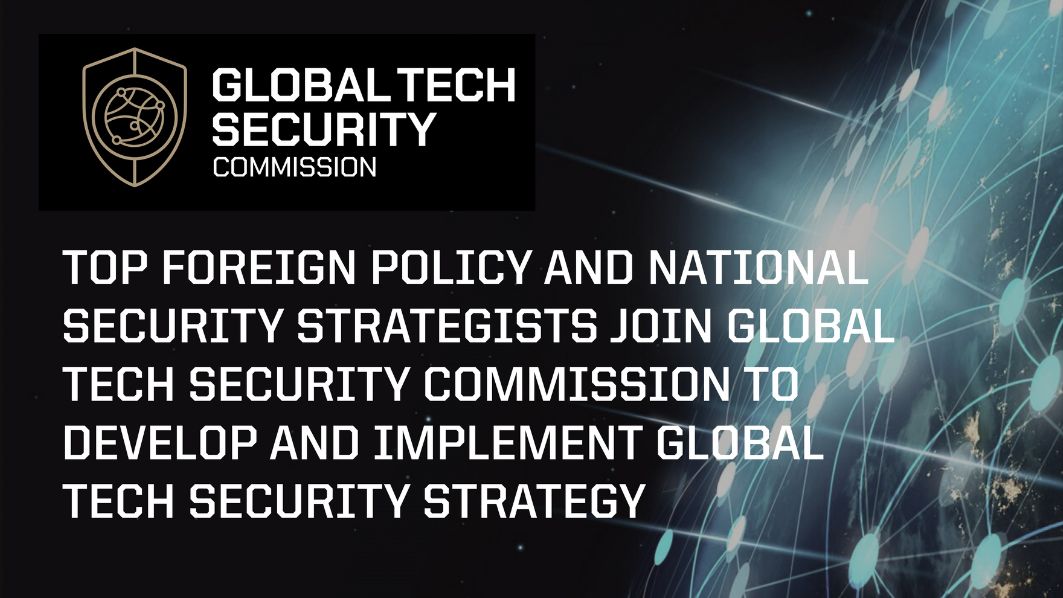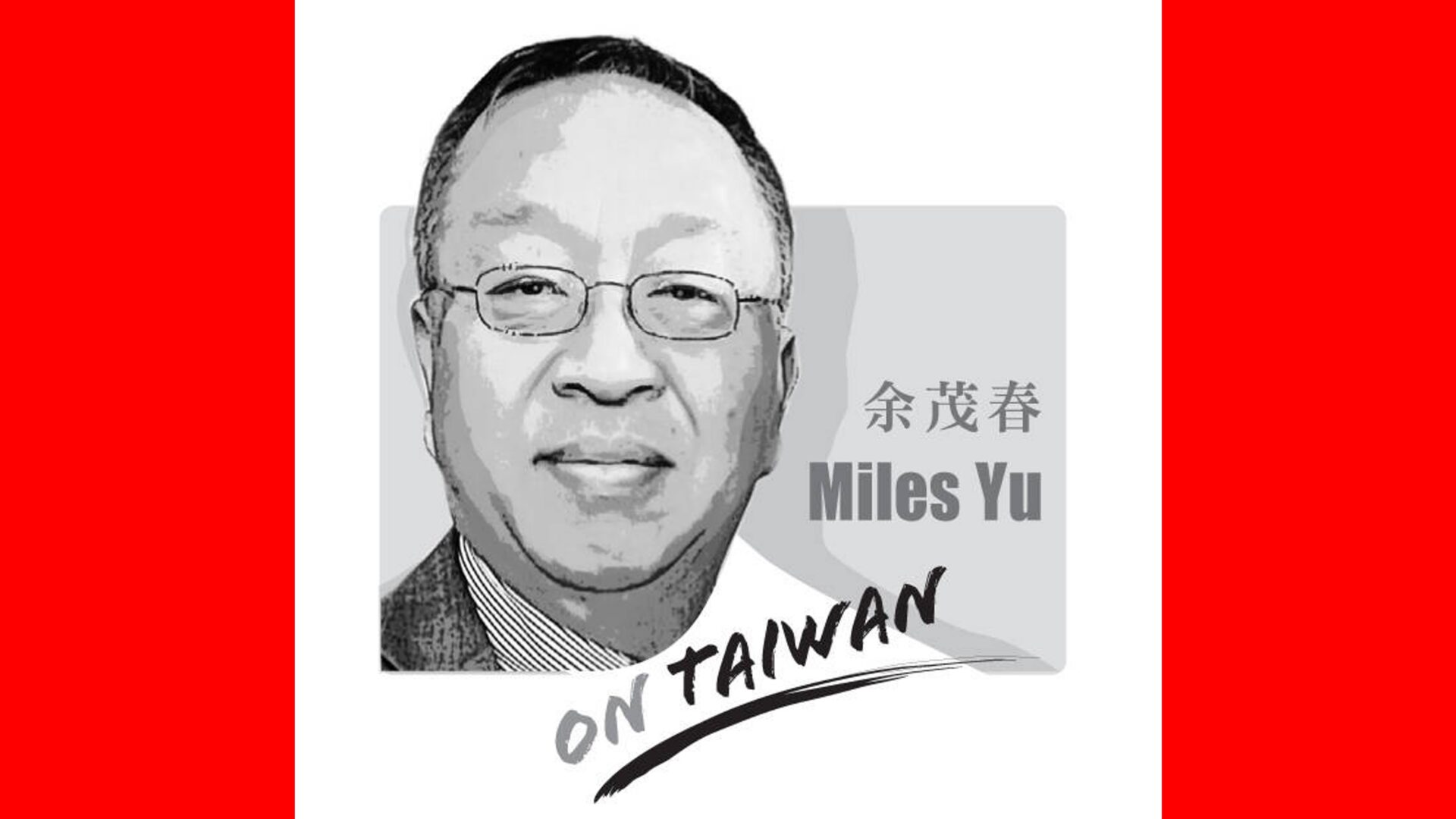
World’s Top Foreign Policy and National Security Strategists Join Global Tech Security Commission to Safeguard Freedom
Krach Institute for Tech Diplomacy at Purdue
11.05.23Renowned Leaders Bring Expertise from Roles in the Public and Private
Sectors to Develop and Implement the Global Tech Security Strategy
WASHINGTON, D.C. November 6, 2023 – Today, the Global Tech Security Commission (GTSC), a worldwide network of multi-sector leaders developing the definitive Global Tech Security Strategy to safeguard freedom from techno-authoritarian threats, has announced the appointment of new Strategy Commissioners. These individuals were recruited for their unparalleled expertise in the public and private sectors and will support the strategic development of a Global Tech Security Strategy. This roster includes accomplished leaders who have held roles at some of the world’s most prominent institutions, including the U.S. Department of Defense, U.S. Air Force, U.S. State Department and industries spanning telecommunications, venture capital, deep tech and professional services.
The new Strategy Commissioners are:
- Board Strategy: John O’Connor, Chairman & CEO, J.H. Whitney Investment Management LLC; Former Executive Partner, J.P. Morgan
- Capital Markets: Roger Robinson , Former Senior Director, National Security Council (NSC); former Chairman, U.S.-China Economic & Security Commission
- China Expertise: Miles Yu, Former Principal China Policy Advisor to the U.S. Secretary of State; Senior Fellow and Director, China Center, Hudson Institute; Professor, U.S. Naval Academy
- Data/Cyber: Andy Geisse, Former CEO, AT&T Business Solutions; Operating Partner, Bessemer Venture Partners
- Defense: Dave Stilwell, Retired Brigadier General, U.S. Air Force; Former Assistant Secretary of State for Asia; Professor, U.S. Air Force Academy
- Development Finance: David Fogel, Former Chief of Staff of the Export-Import Bank of the United States and Senior Advisor, U.S. Department of State; CEO, NCCS
- Diplomacy: Todd Chapman, Former U.S. Ambassador to Brazil and Ecuador
- Economic Security: Corey Johnston, Head of Strategy, Strider Technologies; Retired U.S. Navy Captain
- Education: Henry Stoever, Principal, Brentwood Advisory Group; Former President and CEO, Association of Governing Boards of Universities and Colleges (AGB); Former CMO, National Association of Corporate Directors (NACD)
- Export Controls: Nazak Nikakhtar, Former Assistant Secretary of Commerce, Industry & Analysis, International Trade Administration; Chair, National Security Practice, Wiley Rein LLP
- Investment Screening: J. Mahoney, Former Deputy United States Trade Representative
- IP Protection: Andrei Iancu, Former Under Secretary of Commerce for Intellectual Property; Partner, Sullivan & Cromwell
- Lawfare: Rob Strayer, Former Deputy Assistant Secretary of State for Cyber & International Communications and Information Policy; Executive Vice President of Global Policy, Information Technology Information Council (ITI)
- Logistics: Michael Kratsios, Former Chief Technology Officer of the United States; former Under Secretary of Defense for Research & Engineering; Managing Director, Scale AI
- Media & Countering Disinformation: Harris Diamond, Former Chairman & CEO of McCann Worldgroup; Former CEO, Weber Shandwick
- Micro Lending: Greg Nelson, Former Senior Vice President, Microsoft; Chief Technology Officer, Opportunity International
- Military-Civil Fusion: Greg Levesque, Co-Founder & CEO, Strider Technologies
- Outbound Investment: Richard Kang, Founder & CEO, Prism Global; Former Head of Global Strategy, MTV Networks
- Prosperity Partnerships: Dan Negrea, Senior Director, Freedom and Prosperity Center, Atlantic Council; Former Special Representative, U.S. State Department, Economic Bureau
- Supply Chains: Jim Schwab, Former Director of Strategy & Solutions, U.S. State Department; Founding Partner, CrimStone Partners
“I am honored to join the Global Tech Security Commission and contribute to the promotion of technology’s role in advancing freedom and prosperity in the face of authoritarian challenges by untrustworthy actors,” said the Hon. Todd Chapman, Commissioner for Diplomacy. “The Global Tech Security Commission is building the thought leadership and relationships necessary to bring together the best in technology with the best in governance to empower international governments and companies to resist totalitarian regimes.”
“International partnerships accelerate technological advancements, and interoperability of innovations ensures the safety and security of the United States and our allies,” said Nazak Nikakhtar, Commissioner for Export Controls. “Purdue’s groundbreaking initiative brings Tech Diplomacy to the forefront of international engagement and strengthens the foundation for peace and security worldwide.”
“The Global Tech Security Commission plays a critical, bi-partisan role in challenging and defeating the Chinese Communist Party’s dictatorship that is greatly enabled and empowered by modern technologies and sophisticated tools of repression and aggression,” said Miles Yu, Commissioner for China Expertise.
For more information on GTSC strategy commissioners, including full quotes and biographies, visit globaltechsecurity.com.
+++
About the Global Tech Security Commission
The Global Tech Security Commission aims to unite allied nations, harness private sector innovation and establish a Global Trusted Tech Network to foster and safeguard trusted technologies. Its mission involves devising holistic offensive and defensive strategies for tech sectors deemed crucial for national security by the White House and incorporating them into a Global Tech Security Strategy.
The GTSC consolidates transatlantic and Indo-Pacific allies against growing worldwide authoritarianism on critical tech issues. It is formed of an international group comprising experts in critical tech sectors, countries and strategic sectors leading expert advisory councils. Co-chairs Keith Krach, former U.S. Under Secretary of State and DocuSign CEO, and Kersti Kaljulaid, former President of Estonia and Chair of the Three Seas Initiative, lead the Commission.
For updates on the GTSC, visit https://globaltechsecurity.com. Media inquiries should be directed to KrachInstitute_press@prf.org.
Related Posts

article
The Era Of ‘Tech Diplomacy’ Is Here
Technology is the new frontier of international relations. The interaction is bi-directional: technology is defining diplomatic matters while diplomacy is also influencing the development and deployment of technology. Take semiconductors as an example. This is a technology that forms the foundation of digital economy, national security, and productivity in almost all industries. Global supply chain in the semiconductor industry is shaping U.S. foreign policy. Conversely, America’s diplomatic effort has been redefining the supply chain. Tech diplomacy is different from science diplomacy, which became a key pillar for the U.S. and other countries since World War II. Scientists participated in treaty negotiations, engaged in bilateral summits and served as attachés at embassies. Primary topics included nuclear proliferation, super-collider construction, human space exploration and environmental science.

By: Miles Yu
article
Miles Yu On Taiwan: China’s lessons—and fears—from the Wagner revolt in Russia
For over a century, tumultuous events thousands of miles away in Russia have impacted China profoundly. Mao Zedong (毛澤東) famously said that the cannon sound of the October Revolution brought Marxism-Leninism to China. Now Xi Jinping (習近平) fears that last month’s Wagner revolt may provide a model for the Chinese Communist Party’s undoing.